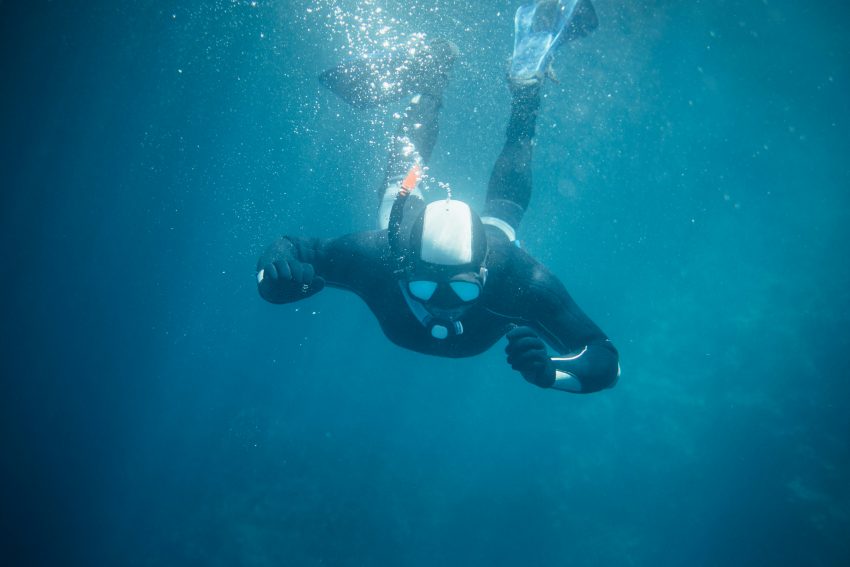Marine geochemistry is a specialized field that studies the chemical processes and interactions within marine environments, including oceans, seas, and coastal waters. Given that much of this work occurs in or near water, a common question arises: Do marine geochemists need to be swimmers? While swimming is undoubtedly a useful skill, the answer to this question depends on the specific nature of the work and the environments in which a marine geochemist operates. This article explores the role of swimming in aquatic geochemistry, examining when and why it might be necessary and when it might not be essential.
Fieldwork and the Importance of Swimming Skills
Fieldwork is a fundamental aspect of marine geochemistry, as it involves collecting samples from various aquatic environments, including coastal areas, open oceans, and deep-sea locations. Marine geochemists often find themselves on research vessels or small boats or working directly in the water during fieldwork. In these situations, swimming can be invaluable, enhancing safety and enabling scientists to access remote or challenging sampling sites.
For instance, marine geochemists working in shallow coastal waters or coral reefs may need to snorkel or scuba dive to collect water, sediment, or biological samples. In these scenarios, being a competent swimmer is beneficial and often essential. Swimming allows researchers to navigate underwater environments more effectively, ensuring they can safely collect samples from otherwise inaccessible areas. Moreover, strong swimming skills can be crucial in emergencies, such as if a scientist accidentally falls overboard or encounters rough seas while working near the shore.
However, it is important to note that not all marine geochemists engage in fieldwork that requires swimming. Swimming skills may not be necessary for those who primarily work in laboratories or focus on data analysis and modeling these cases; the emphasis is more on analytical and computational skills than physical abilities.
Laboratory Work and Alternative Skill Sets
While fieldwork is an important component of marine geochemistry, a significant portion of a marine geochemist’s work occurs in the laboratory. Here, scientists analyze the collected samples, using sophisticated instruments and techniques to study the chemical composition of marine waters, sediments, and organisms. Laboratory work requires different skills, including proficiency in analytical chemistry, attention to detail, and operating complex equipment.
In the lab, swimming is irrelevant; what matters are the technical skills required to process and analyze samples. For example, marine geochemists may use mass spectrometry, chromatography, or spectrophotometry to identify and quantify chemical elements and compounds. These tasks demand a deep understanding of chemistry and the ability to interpret complex data, but they do not require physical prowess in swimming.
Moreover, some marine geochemists specialize in computational modeling, using mathematical models and computer simulations to predict the behavior of chemical processes in aquatic environments. This area of research relies heavily on programming, statistical analysis, and a strong foundation in mathematics.
Safety and Training for Fieldwork
Even though swimming is not required for all marine geochemists, those who engage in fieldwork are often encouraged to have basic swimming skills. This is primarily a matter of safety. Working on or near the water presents inherent risks, and being able to swim can reduce these risks. For example, if a researcher is conducting fieldwork on a small boat, the ability to swim could be crucial in an accident or unexpected conditions, such as capsizing or falling overboard.
To address these safety concerns, many research institutions and marine programs provide their scientists scientists with training in water safety and swimming. This training often includes swimming lessons and instruction in using life jackets, emergency procedures, and first aid for water-related incidents. Additional certification, such as scuba diving training, may be required for marine geochemists who will be diving. These certifications ensure that researchers are prepared for the specific challenges of working underwater, including handling the physical demands of diving and responding to emergencies.
Ultimately, while swimming may not be a strict requirement for all marine geochemists, it is a valuable skill that can enhance safety and effectiveness during fieldwork. For those who do not swim, participating in safety training and becoming familiar with water safety protocols is essential when working in aquatic environments.
The Bottom Line: Swimming as a Useful, but Not Universal, Skill
In conclusion, the necessity of swimming skills for marine geochemists depends largely on the nature of their work. For those involved in fieldwork, particularly in environments that require snorkeling, diving, or working from small boats, swimming is an important and often essential skill. It enhances safety, allows greater access to sampling sites, and prepares researchers to handle emergencies in aquatic settings.
However, not all marine geochemists need to be swimmers. Many scientists in this field focus on laboratory analysis, data modeling, and theoretical research, where swimming is not a relevant skill. For these professionals, technical expertise, analytical thinking, and computational abilities are far more critical to their success.
While swimming can be a valuable asset for marine geochemists, particularly in fieldwork, it is not a universal requirement. The field of marine geochemistry is diverse, and the skills needed vary widely depending on the specific focus of one’s research. Whether in the water, the lab, or the computer, marine geochemists are vital in advancing our understanding of the chemical processes that shape our oceans and our planet.

